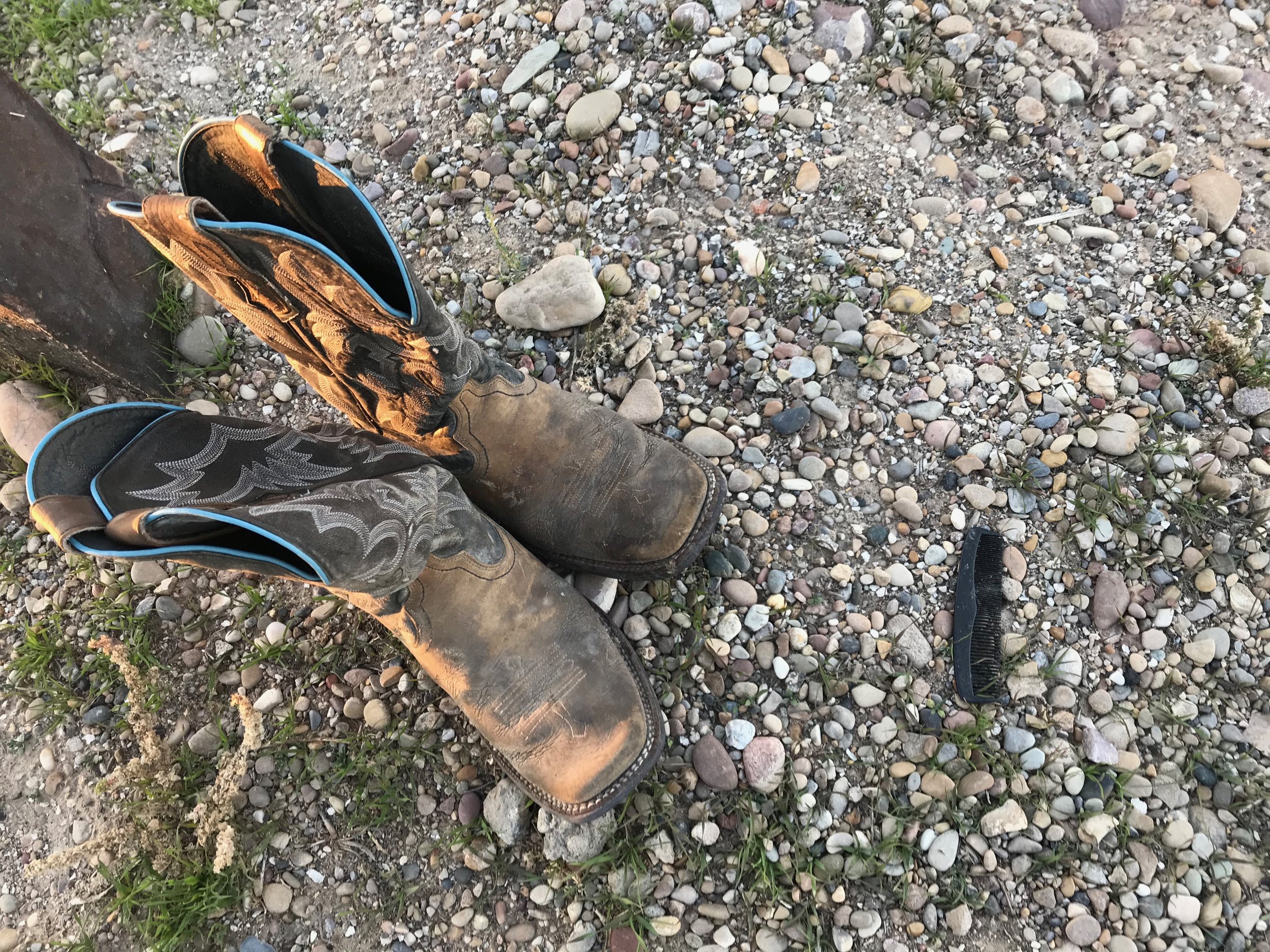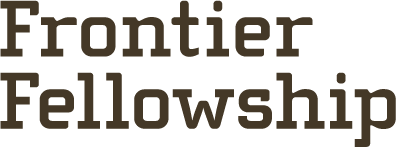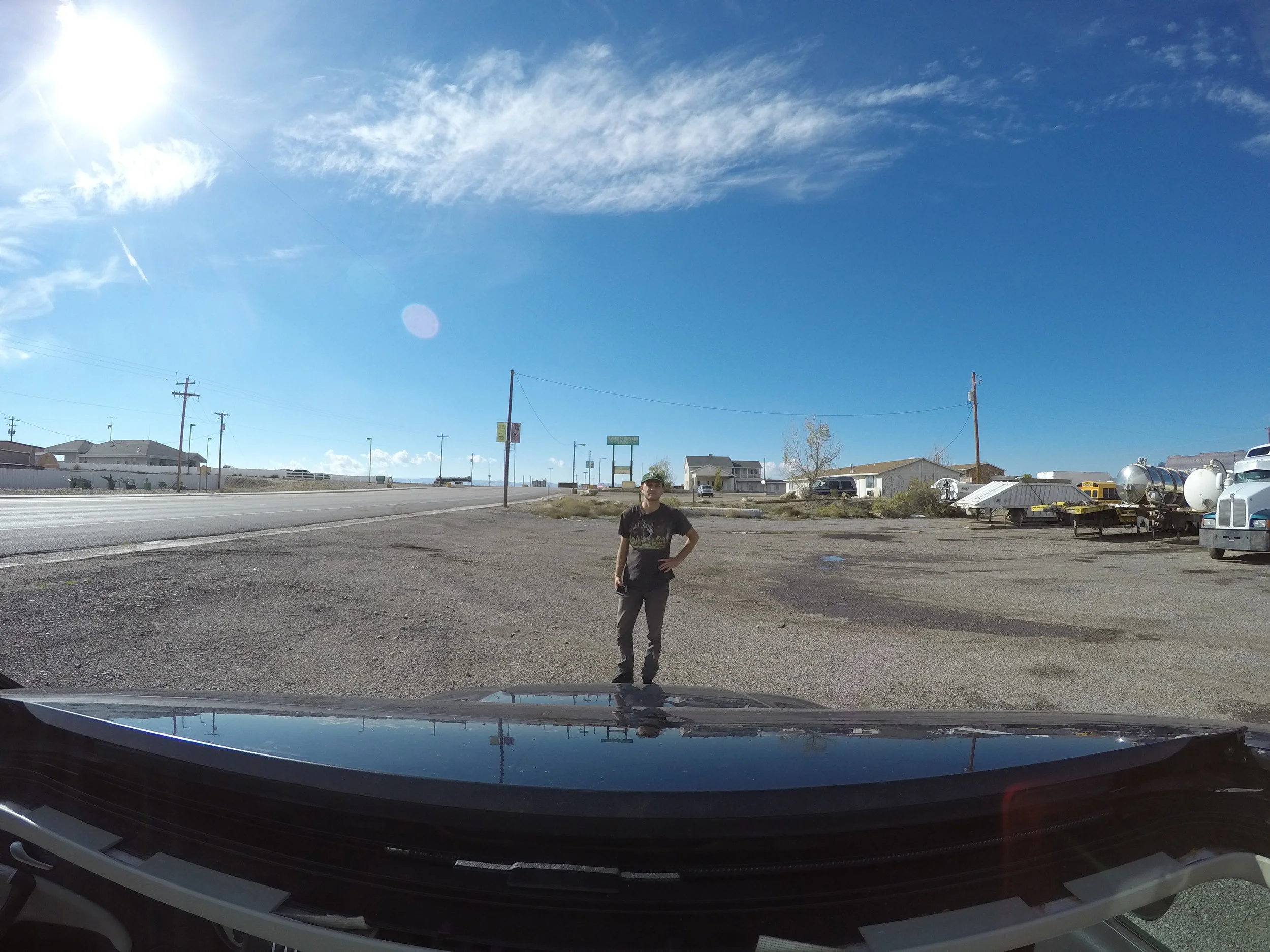Thomas Grant Richardson

Thomas Grant Richardson holds an M.A. in ethnomusicology and is currently completing his Ph.D. in folklore from Indiana University. He has worked for Traditional Arts Indiana, Utah Folk Arts Program, New Mexico Arts, Museum of International Folk Art, and the Birthplace of County Music Museum. He is currently an independent folklorist and documentarian based in Santa Fe, NM.
I came to Green River with big ideas about teaching young professionals and high schoolers ethnographic skills that could help them self-document their lives. As a folklorist and documentarian, I am imbued with two fundamental beliefs: one, that no one place is more compelling or full of human stories than another, but it’s in the telling that it seems so. And two: that people fundamentally want to create. To create something, anything. I was drawn to the work of Epicenter because in a town that I’d driven past my whole life (a familiar story of Green River) these people were set on creating something here. [The Welcome to Green River sign should be a design model for the entire country!]
On my drive into town I revisited an old audio gem called “Ghetto Life.” It’s a radio program created in the early 90s [way before it was cool to make audio programs] where NPR reporters gave a couple of tweens in a Chicago Housing Project microphones and recorders and (somehow) coached them to interview their family, friends, and neighbors, to create an audio portrait of a world most NPR listeners will never experience first-hand. I had visions of doing something similar with Green River High School students, albeit, a “rural life” version. Maria Sykes had connected me with ninth grade English teacher Ren Hatt, who had agreed to have me take over one of his classes for a week, to teach recording and photography skills. In addition to working with students, I’d worked with Epicenter to schedule two community workshops to focus on family documentation skills, one at the library and one at the John Wesley Powell River History Museum.
There are two ways to evaluate my week in Green River and my efforts there. One could see it as a measured failure, since the workshops were sparsely attended if at all, and the information wasn’t easy digestible to those in attendance [one woman asked how to get a fantastic video of her father singing off her smartphone, when I explained she needed to transfer it to a computer, she glazed over. What was she expecting?] The students, through familiar with smart phones, were confused by the nature of the project and not terribly receptive to the exercises, more interested in playing with the fancy microphones than using their own equipment. Throughout the week I also met with potential partners at John Wesley Powell Museum and KZMU in Moab to further the use of audio documentation skills. Folks there were overworked, understaffed, and demands on their time and skills were taxed. All of this taught me a lot about life in Green River, and in this way, the Fellowship could be a success.
I’d been coming at the project from an arrogant standpoint. I’d assumed I had something to teach the folks of Green River. That I could swoop in for a week, drop my knowledge, and leave the place grateful and forever changed. This, of course, is nonsense. I don’t think I taught the people in Green River anything, but they taught me so much! First, while on the surface Green River both seems depressed [shuttered businesses, dilapidated buildings] and active [multiple art installments in town, a museum, youth center, multiple restaurants, and melon stands!] the idea of community fatigue plagued my time there. Who was I? What did I want of these people? Why can’t folks just be left alone to live their lives and not constantly create something?
Green River seems to have long been a conservative community. I don’t mean conservative in a political sense, but in their vision on life. Things have happened to Green River [missile defense, uranium mining, I-70] rather than taking a more proactive view of their destiny. Epicenter is changing that. Green River is transforming into a place where one can choose their life, rather than have it handed to them. That kind of change is radical, slow acting, and not without perils.
My time in Green River as a Frontier Fellow was one of discovery and learning. I was learning about the town and the people, they about me. During my Fellowship I became fascinated that there didn't seem to be more documentation around Melon Days, and the families of melon growers. If efforts to right that oversight, and put my money with my mouth is, I partnered with Maria Sykes to apply to the Utah Humanities for a research grant. I am excited that I will be returning to Green River in 2019-2020 to conduct oral histories surrounding melon growing thanks to a Delmont R. Oswald Fellowship for Utah Studies. I greatly look forward to building my relationship with Epicenter and the people of Green River.















